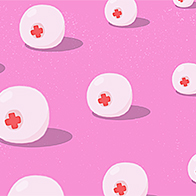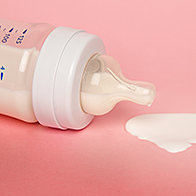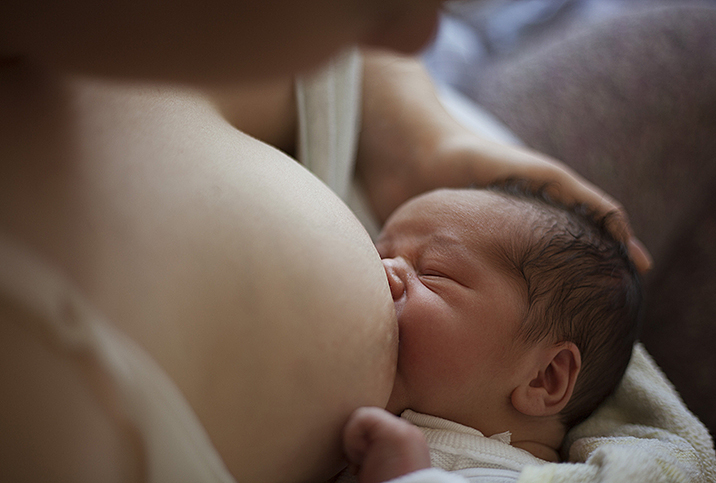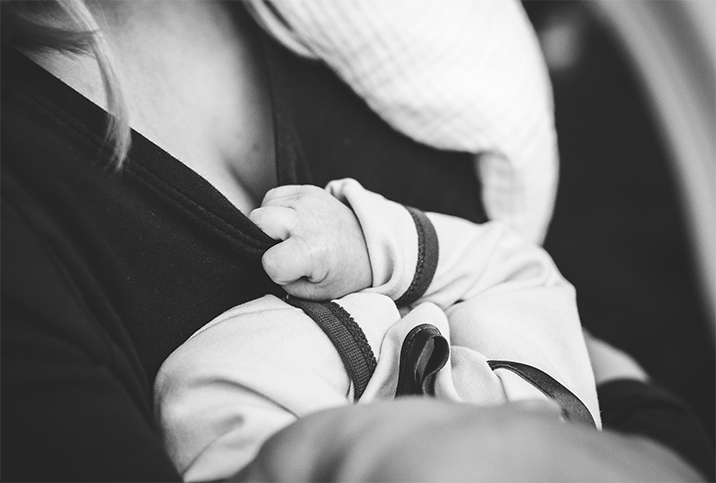Take Care of Your Breasts After Childbirth
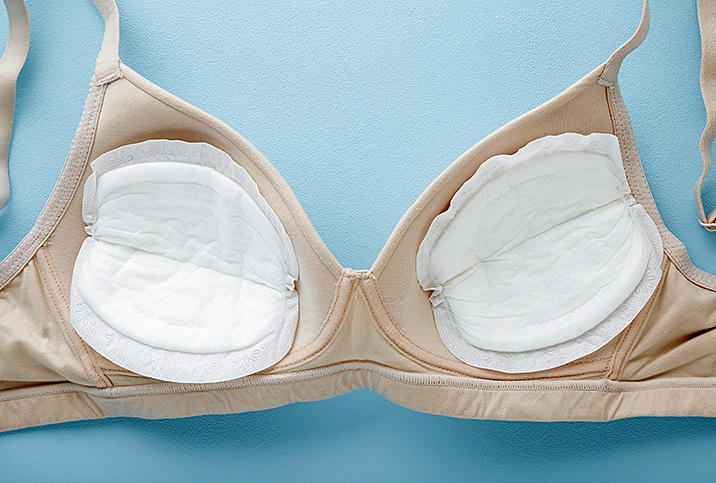
Of the many issues a woman's body experiences when she bears a child, changes to the breasts are some of the more significant. For your comfort and health, it's best to know what to expect, how to cope with it and what you can do to minimize any complications.
Breast changes after childbirth
Changes to the breasts are among the first changes a woman sees when she's pregnant. They grow, and the areolas get bigger and darker. Many women's breasts get more sensitive and may leak colostrum, the first form of milk that new mothers produce just after giving birth. Breasts expand, especially in the days leading up to childbirth, as mammary glands produce milk; afterward, estrogen and progesterone levels quickly decrease, and breasts may continue to enlarge as colostrum becomes diluted and turns into milk for breastfeeding.
Many women find that their nipples leak when their child cries or when they haven't nursed recently. Not breastfeeding (or pumping) as milk comes in creates risk for a number of issues, including engorgement (breasts overly full with milk) and blocked milk ducts, which are especially common if you stop breastfeeding suddenly. These complications can potentially lead to infection, specifically, mastitis, which can turn into an abscess.
Sore and cracked nipples are also common, especially if the baby doesn't latch on to them properly. Cracks can lead to thrush, a Candida fungal infection that can be spread to your child.
Impact on daily life
The changes happening to your breasts can't be turned on or off with a switch. You'll likely have a whole new set of daily challenges to face that can flare up at any given moment.
Leaking milk can be inconvenient at best and humiliating at worst. Breast or nipple pain or tenderness make breastfeeding or pumping more difficult, exacerbating the already challenging time of new motherhood. Feeding is one of the primary ways moms connect with a newborn, and experiencing discomfort while doing it can be arduous both physically and mentally. Bras may chafe and increase breast sensitivity. Working out and other physical activity may be difficult. Even sex may be problematic if your breasts are sensitive or your nipples are scabbed.
Coping with breast issues
Talk with your primary care provider for a formal diagnosis if you are experiencing breast pain. Engorgement can be treated by feeding your baby more frequently—make sure he or she is latching properly—and/or expressing the breast milk. Unclog milk ducts naturally with frequent feeding or by massaging. Mastitis also can be improved with continued feeding—this will not harm your child—but you should have it evaluated by a physician, as antibiotics may be required.
A breast abscess is much less common but should be evaluated immediately. Thrush can be passed on to your baby and must be treated. Your own fresh breast milk can soothe sore and cracked nipples, as can a warm compress, saltwater rinses and medical-grade lanolin ointment.
Prevent breast issues
While a plethora of solutions are available when a problem arises, you can get out ahead of any potential issues. No preventive step is foolproof, but some choices may improve your odds for comfortable and complication-free breastfeeding.
Prepare for breast leakage by placing washable, absorbent padding in your bra. You can even find nursing bras designed for extra-absorbency. For issues with feeding, don't hesitate to seek a professional's help. If you're finding breastfeeding uncomfortable, or if your child isn't latching properly, a midwife or lactation consultant can give you advice. Don't be embarrassed to ask for help; it's a common problem. Seeking help early can save you a lot of pain and frustration. If you are ready to stop breastfeeding, slowly reduce the length and number of feedings so the breast naturally ends milk production. Stopping suddenly can lead to breast engorgement or blocked ducts.
If you're anxious about having larger breasts due to weight gain, try to stay in shape during and after your pregnancy, but be sure to practice pregnancy-safe exercise and eat a healthy diet. Talk to your doctor about a diet and exercise plan, along with what constitutes healthy weight gain for your pregnancy.
Tips for nursing moms
A critical piece of advice: Be patient. Let your baby determine when feedings happen and how long they last. Make nursing comfortable for both of you by creating a special space where your baby is comfy and you can relax. Take care of your skin (feeding can make skin dry) and stay hydrated.
Buy proper nursing bras, which are different from the maternity bras you wore while pregnant. While both are underwire-free and offer extra support, nursing bras have clasps and panels that allow you or your baby easy access to the breasts. Specific nursing blouses and tops come with discreet, built-in panels and offer breast access without exposing your torso.
Becoming confident in your post-childbirth body is essential. Your old wardrobe may not fit you right away, or ever, which is OK, so find clothes that are comfortable rather than squeezing into dresses from last year.
Remember that you're not alone. Every new mother knows what you're going through. Get help early to make it easier to enjoy this special time with your new baby.







